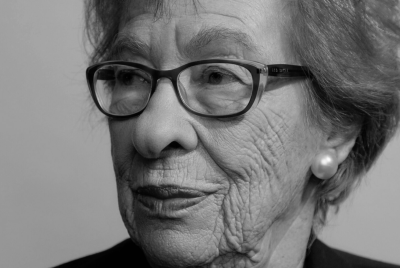Remembering 7/7: King Charles and Starmer Commemorate 20th Anniversary of Horrific London Bombings
20 years ago, four suicide bombers targeted London commuters on the city's transport network during peak hours.

The Prime Minister and King Charles have both addressed the nation today marking 20 years since the devastating 7/7 attacks on London.
On 7 July 2005, four bombs exploded across London, killing 52 people and injuring over 700 more.
'We remember with profound sadness the 52 innocent people who were killed in senseless acts of evil - and the enduring grief of their loved ones,' King Charles said in a statement to the public. 'We recall, too, the hundreds more who carry physical and psychological scars, and pray that their suffering may ease as the years pass,' he added.
Sir Keir Starmer also released a statement early in the day, and attended the memorial service at St. Paul's Cathedral along with the Duke and Duchess of Edinburgh and emergency workers who responded on the day.
2005 London Bombings
20 years ago, four Islamist suicide bombers targeted London commuters on their way to work via London's transport network. Three bombs went off on the underground around Aldgate, Edgware Road and Russell Square stations at 8:50am.
The fourth was on a bus that had been diverted via Tavistock Square and went off at 9:47am. The explosion occurred near the British Medical Association (BMA) House and the British Transport Police's (BTP) headquarters, becoming a base for the wounded to go.
52 people aged between 20 and 60 years old lost their lives and over 770 more were injured.
Emergency workers worked tirelessly throughout that day, as well as members of the public who jumped into the chaos to help–all of whom have been honoured for their bravery and who serve as a reminder of 'the very best of humanity.'
Charles and Starmer Remember Victims and Honour Responders
'Those who tried to divide us failed,' the Prime Minister said in a statement released earlier today. 'We stood together then, and we stand together now—against hate and for the values that define us of freedom, democracy and the rule of law,' he added.
Starmer honoured the courage shown by 'the bravery of the emergency services, the strength of survivors, and the unity of Londoners in the face of terror.'
King Charles also honoured the 'selfless bravery' of those who 'rushed towards danger to help strangers,' thus reminding 'us of the very best of humanity in the face of the very worst.'
The King also mentioned that although events like these are horrible, we may take comfort in how they rally the community together and bring forth London's spirit of unity.
'As we remember those we lost, let us therefore use this 20th anniversary to reaffirm our commitment to building a society where people of all faiths and backgrounds can live together with mutual respect and understanding, always standing firm against those who would seek to divide us,' he concluded.
The Home Secretary, Yvette Cooper, also made a statement alongside Starmer's.
'As we come together to mark this anniversary, my thoughts remain with the victims, survivors and all who loved them,' she said.
'We will always confront the threats facing this country to keep the public safe and preserve our way of life,' she added.
Survivors and Responders Remember That Day
Bill Mann was on his way to work when a bomb exploded at Edgware Road station just as his train was pulling into it.
'My first memory is actually of flying through the air to the opposite doorway. I thought: 'Is this it, is this where it all ends?' he told the BBC on Monday.
'There was a brief pause, a brief moment of silence, and then the screaming started and I'll always remember it because there were two distinct screams,' he said. 'I could hear the screams of people in the carriage that were just hysterical, but I could also hear the screams of the people that were badly injured and dying and they were very, very different.'
Dr. Holden was at BMA House when the Tavistock Square bomb went off. He along with 13 other BMA staff and doctors used the inner courtyard of BMA House to treat patients and cover the dead.
Since BMA House is made up of offices rather than a place of healthcare, there were barely any medical supplies for them to use. Tables were made into stretchers and tablecloths were used as bandages.
Dr. Holden recalled how doctors who hadn't put a drip in for 30 years were inserting cannulas into people 'like they last did it yesterday.'
'I knew that if we didn't do the most for the most we would lose more people than we had to,' he said.
© Copyright IBTimes 2025. All rights reserved.






















